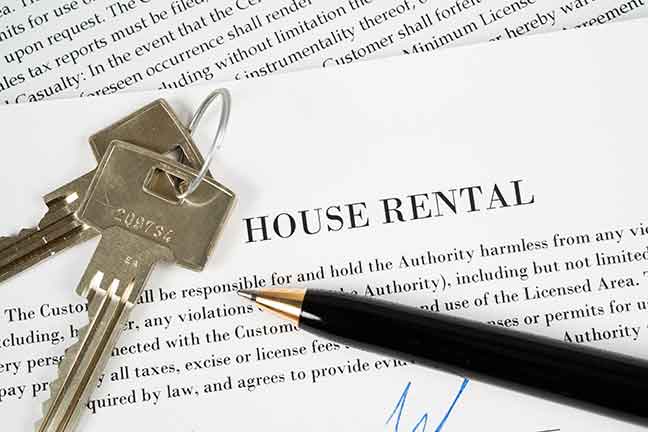You’re desperately needing a place to live after job loss or a family crisis. But with minimal money saved up as well as bad credit, finding apartments seems impossible. Don’t stress! With some clever thinking, tapping into local resources, getting some help from friends, and a touch of luck, you’re likely to find a landlord to give you a chance.
This blog post explores creative ways to convince property managers and owners to offer you housing, even with empty pockets. We’re going to talk about negotiating rent reductions, seeking emergency assistance funds, and presenting yourself as a tenant they can trust. While it won’t be easy, with persistence and an open mind you could find housing with no money in an emergency.
Assess Your Current Financial Situation
Step 1 is to take a hard look at your finances. How much money do you currently have available? Do you have any income coming in at all, even if it’s small? Make a list of your essential expenses like food, transportation, and medicine to determine how much you’re going to need for basic necessities.
If you have no money at all, you’re going to have to get creative. Apply for assistance programs like food stamps or Medicaid as soon as possible. Ask friends or family members if you can borrow money or stay with them temporarily. Find ways to earn quick cash doing odd jobs, surveys, market research studies, selling unwanted items online or at a yard sale. With determination by utilizing all resources available, find an affordable place to stay during this difficult time. Reach out to fond help and stay focused on improving your situation.

Talk to Your Landlord Directly
If possible, a good option is to speak to your landlord in person. Explain your situation honestly but tactfully, without too many details. Let them know you’re encountering some financial difficulties recently and are struggling to make the full rent payment this month. Ask if they would consider temporarily reducing or waiving a portion of the rent, or setting up a payment plan so you can pay it back over time. Many landlords would rather work with a good tenant than have the unit sit empty.
- Offer to sign a short-term lease renewal if they give you a break on your rent.
- Ask if they have jobs available, like cleaning, landscaping, or maintenance. Doing work in exchange for rent may be an ideal solution for both of you.
- Check if they would accept partial payment now and the balance within the next week or two when your money situation improves. Make a firm commitment to a payment date and stick to it.
- Discuss subletting options where you handle finding a subletter to take over rent payments for a couple months. Make it clear you plan to resume your lease after that time.
- Consider moving to a less expensive unit in the same building if available. Your landlord may be willing to transfer your deposit and any credits to the new rental.
By communicating openly and honestly with your landlord, there’s a good chance you can come to an agreement together. Compromise and flexibility are essential. Stay positive—this is only a temporary setback and there are always solutions if you find them. Keep your lines of communication open, follow up on any commitments made, and your relationship with your landlord will remain solid.
Alternative Housing Options With No Money
When you’re in a desperate situation with no place to live, There’s many options or organizations that work to help you and your neighbors maintain housing stability
Stay with Friends or Family
Reach out to people you trust and ask if you can stay with them for a short time. Offer to help out with chores or errands as a way to contribute. Let them know your situation is temporary and you’re working to find other housing.
Homeless Shelters
Reach homeless shelters to explain your situation. Many offer housing programs that could give you a place to stay for a couple nights until you get back on your feet. Some may even be able to help pay for a room at a motel. Explain that you’ve been displaced from your home and have no money for rent. Ask if they have any emergency funds or programs that could offer temporary housing or utility assistance. Help with utility bills such as home energy even if you’re not a property owner is a great resource.
Food Banks or Soup Kitchens
Food banks and soup kitchens are also useful resources in this type of situation. They could provide you meals and food so you have one less expense to worry about.
Places of Worship Like Churches or Mosques
Places of worship like churches, synagogues, and mosques may also be able to help, especially if you’re a member of the congregation. Explain your situation to the leaders or charity groups within your place of worship. They may be able to provide emergency funds, temporary housing, or connect you with resources to help during this difficult time.
Don’t hesitate to reach out to multiple organizations
Don’t hesitate to reach out to multiple organizations for help. The more resources you can access, the better. Keep making calls and sending emails until you find emergency housing. Staying in a shelter or motel could give you a stable place to regroup and work on a plan to find an affordable rental. With the support of local catholic charities and renters community help, you can deal with this.
Live in Your Vehicle (If You Have One)
As a last resort, you can live in your vehicle until you find alternative housing. Park overnight at truck stops, Walmart, parks, or campgrounds. Find safe places to and meet basic needs. This should only be temporary – keep working with local organizations to find shelter and resources.

Explore Government Rent Assistance Programs
Low-income families facing housing crisis could receive government help. Government assistance programs could help pay for or subsidize your rent payments.
Public Housing and Section 8 Vouchers
Struggling financially? The Department of Housing and Urban Development (HUD) offers subsidized housing and vouchers to help low-income individuals and families cover their rent. Public housing provides apartments, while Section 8 vouchers could be used to pay for private housing. Waiting lists are long for housing, but in an situation, you may qualify for priority status.
Homeless Programs
If you’re homeless or at risk of becoming homeless, programs like the Emergency Solutions Grant (ESG) Program and Continuum of Care (CoC) Program provides temporary shelter and financial assistance with rent and deposits for permanent housing. Non-profits and homeless shelters in your area may be able to connect you with these resources.
SNAP | Medicaid
The Supplemental Nutrition Assistance Program (SNAP) and Medicaid health insurance program are not direct rental assistance programs, but they can help free up money in your budget to put toward rent payments in an emergency situation. SNAP provides food benefits and Medicaid provides health coverage for those who’re on a budget.
While waiting for government assistance, also check with your local communities foundation or non-profits such as Habitat for Humanity or Salvation Army.

Housing Assistance in Oklahoma? Apply to Some FREE Benefits!
If you’re reading this blog, you’re likely in Oklahoma facing some sort of financial struggle. Don’t worry — it happens all the time. Luckily, EASY Wireless is here to help some more!
Partnering with programs such as Lifeline & ACP, we’re offering FREE phones with data to eligible renters just like yourself. Whether you need to keep in touch with friends & family or you want to just save money on your current plan, here’s what we’re offering:
EASY Wireless Unlimited Plan
- FREE Unlimited Data
- FREE Unlimited Talk
- FREE Unlimited Text
- FREE SIM Card Kit and Activation
- Choose to Keep Your Number or Get a New One
To start with EASY Wireless, apply online by clicking the below:
Or you can come to one of our EASY Wireless retail stores, where our customer service agent will help you apply for your benefits.


